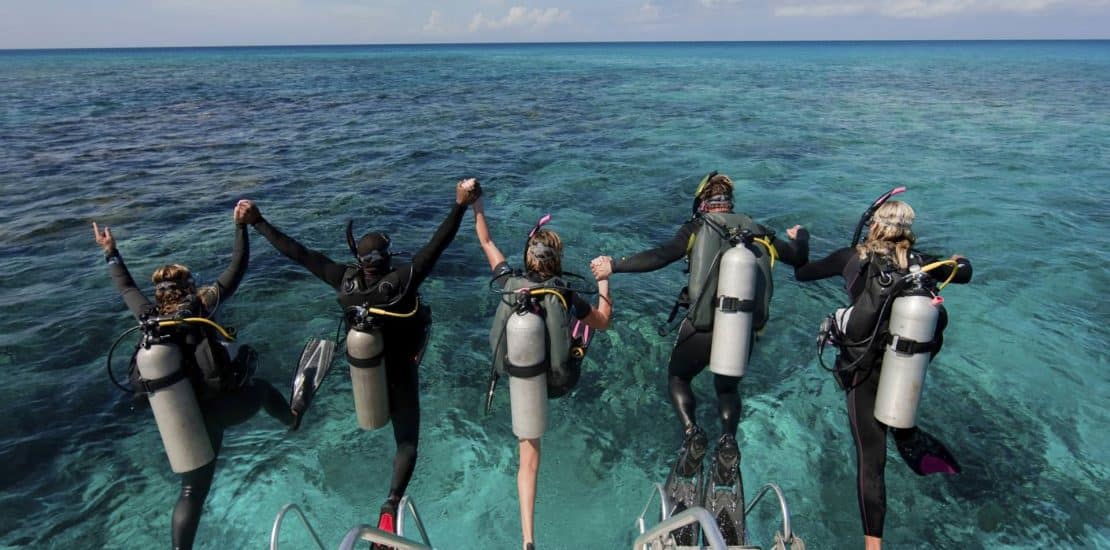- May 17, 2018
- Posted by: A-1 Scuba Diving And Snorkeling Adventures
- Category: Blog

Teaching curious minds of all ages about the thrill of diving is one of our biggest passions here at A-1 Scuba. And since we are dedicated to helping you learn to dive, we want to share five tips that will make you a better diver! So… let’s dive!
With these tips you’ll be swimming the big blue in no time!
You’ve got fins! Now use them!
When you do not use your fins, it reduces how much control and power you have while underwater. Whole-leg kicking can take some getting used to because people naturally kick with their knees. Instead extend your kick so that it starts from your hip. You want to relax your knees and keep them a little bent, but most of the power of your kick should originate from your waist and your hips.
Swim With Your Legs and Not Your Arms
Swimming with your arms is natural for anyone who knows how to swim. While scuba diving, however, it is more important to use the power of your legs. Swimming with your arms can tire you throughout the duration of your dive and you will use up your air faster. If you’re looking for speed the fins you’re given actually help you propel through the water easier! If you do feel the need to use your arms, remember to keep your hands apart and to release anything you may be holding on to.
Breathe Like A Scuba Diver
Once you understand how to swim using the whole-leg kick, your breathing will naturally become deeper and longer because your movements become more deliberate. However, because we don’t normally think about how we breathe, breathing for scuba diving is also a skill that needs to be exercised consciously. As the depths and water pressure changes so will your capability to breathe efficiently. We recommend that you breathe at fourteen second intervals, seven in and seven out. And of course when you come out of the water it’s important to sip at the air, not gulp it in!
Make Sure You Are Properly Weighted
Anyone who is new to diving will be concerned about staying down in the water. Which is why scuba diving instructors will overweight their students during an open water course. Once you become more familiar with weighting yourself you’ll see an immediate improvement in your diving skills.
Safety is Key
When you dive you will be able to take in many new surroundings that you’ve never seen before. While these sites are truly amazing to see up close and in person, you do not want to forget how important safety is for you and your fellow divers! Be aware of where you’re at in reference to what and who is around you. Always, always be aware of your diving buddy and your gear!
And remember, that your instructors are there to help you! Ask them whatever question crosses your mind. Between these tips and your instructors assistance you’ll be under the surface in no time!











